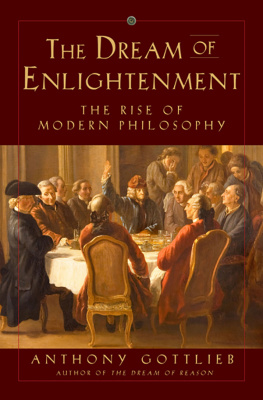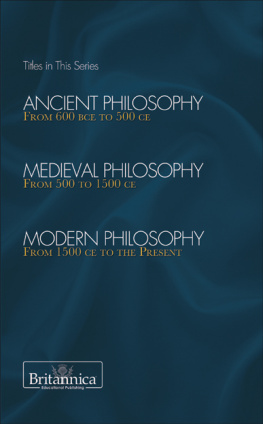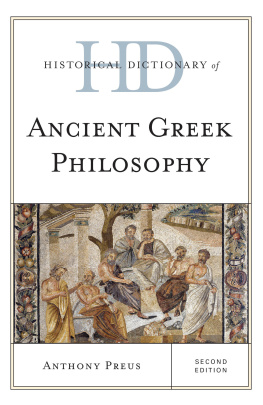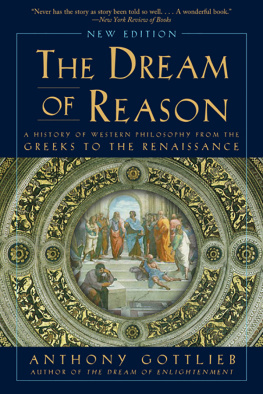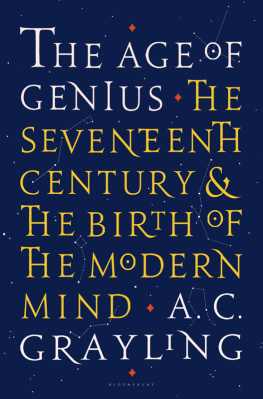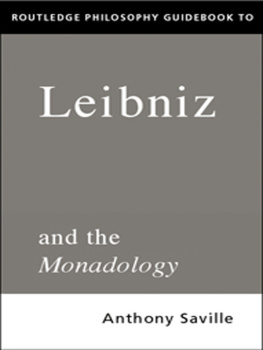Anthony Gottlieb - The Dream of Enlightenment: The Rise of Modern Philosophy
Here you can read online Anthony Gottlieb - The Dream of Enlightenment: The Rise of Modern Philosophy full text of the book (entire story) in english for free. Download pdf and epub, get meaning, cover and reviews about this ebook. year: 2016, publisher: Liveright, genre: Science. Description of the work, (preface) as well as reviews are available. Best literature library LitArk.com created for fans of good reading and offers a wide selection of genres:
Romance novel
Science fiction
Adventure
Detective
Science
History
Home and family
Prose
Art
Politics
Computer
Non-fiction
Religion
Business
Children
Humor
Choose a favorite category and find really read worthwhile books. Enjoy immersion in the world of imagination, feel the emotions of the characters or learn something new for yourself, make an fascinating discovery.
- Book:The Dream of Enlightenment: The Rise of Modern Philosophy
- Author:
- Publisher:Liveright
- Genre:
- Year:2016
- Rating:5 / 5
- Favourites:Add to favourites
- Your mark:
The Dream of Enlightenment: The Rise of Modern Philosophy: summary, description and annotation
We offer to read an annotation, description, summary or preface (depends on what the author of the book "The Dream of Enlightenment: The Rise of Modern Philosophy" wrote himself). If you haven't found the necessary information about the book — write in the comments, we will try to find it.
The author of the classic The Dream of Reason vividly explains the rise of modern thought.
Western philosophy is now two and a half millennia old, but much of it came in just two staccato bursts, each lasting only about 150 years. In his landmark survey of Western philosophy from the Greeks to the Renaissance, The Dream of Reason, Anthony Gottlieb documented the first burst, which came in the Athens of Socrates, Plato, and Aristotle. Now, in his sequel, The Dream of Enlightenment, Gottlieb expertly navigates a second great explosion of thought, taking us to northern Europe in the wake of its wars of religion and the rise of Galilean science. In a relatively short periodfrom the early 1640s to the eve of the French RevolutionDescartes, Hobbes, Spinoza, Locke, Leibniz, and Hume all made their mark. The Dream of Enlightenment tells their story and that of the birth of modern philosophy.
As Gottlieb explains, all these men were amateurs: none had much to do with any university. They tried to fathom the implications of the new science and of religious upheaval, which led them to question traditional teachings and attitudes. What does the advance of science entail for our understanding of ourselves and for our ideas of God? How should a government deal with religious diversityand what, actually, is government for? Such questions remain our questions, which is why Descartes, Hobbes, and the others are still pondered today.
Yet it is because we still want to hear them that we can easily get these philosophers wrong. It is tempting to think they speak our language and live in our world; but to understand them properly, we must step back into their shoes. Gottlieb puts readers in the minds of these frequently misinterpreted figures, elucidating the history of their times and the development of scientific ideas while engagingly explaining their arguments and assessing their legacy in lively prose.
With chapters focusing on Descartes, Hobbes, Spinoza, Locke, Pierre Bayle, Leibniz, Hume, Rousseau, and Voltaireand many walk-on partsThe Dream of Enlightenment creates a sweeping account of what the Enlightenment amounted to, and why we are still in its debt.
Anthony Gottlieb: author's other books
Who wrote The Dream of Enlightenment: The Rise of Modern Philosophy? Find out the surname, the name of the author of the book and a list of all author's works by series.

